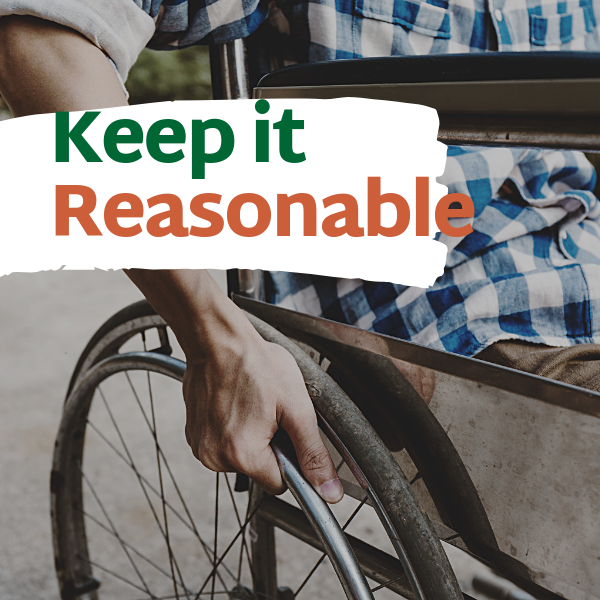The Americans with Disabilities Act (ADA) can be a complicated, convoluted mess to understand. Do you need a smoke detector designed for the hard of hearing with wasabi emanating from it? Do you need a ramp at every entrance? The ADA doesn’t apply to privately-owned single-family homes, at least not until a tenant arrives. When that happens it’s legally essentially for you to understand how to handle and create reasonable accommodations and/or modifications for your tenants.
Under the Fair Housing Act, every person has the right to live in and enjoy a home. That means making some changes, either to your policies or to the home itself. When the time comes, it may be necessary to bend your rules here or there so that a tenant can utilize the home the way anyone else would. If this means adding a ramp, that would be a reasonable modification as the change is physical to the home itself. If it means allowing a service animal such as a seeing eye dog, that would mean bending a no-pet or animal policy for a tenant. Unlike a reasonable modification, changing a preexisting policy would be known as a reasonable accommodation.
Reasonable Accommodation
Adjustment to Policy or Rule
Reasonable Modification
Adjustment to Physical Property
A reasonable accommodation is an adjustment made for an individual to help them with a specific need. They cannot place a disproportionate or undue burden on the landlord, they’re only there to make sure those with the need have the equal opportunity to occupy a dwelling in the same way everyone else does.
A good example would be having a tenant who utilizes a wheelchair. A property owner would not be expected to put in an elevator for their tenant, and most likely, a tenant in a single-family home chose it because the bedroom would be on the ground floor anyway and wouldn’t require a landlord to build an elevator or wheelchair. However, there may be a time to install a ramp. If the garage has a step down to the car, or the door stoop has a layer of brick to overcome, a ramp can make the obstacle passable.

In short, a landlord is required by law to provide a modification or accommodation as long as it is not an undue financial burden or hardship. You don’t have to completely redo your driveway, but maybe a sideway cut can work. If you have an over-the-stove microwave, that doesn’t mean completely rebuilding your kitchen, but a second microwave somewhere that is easier to reach may be required.
The important thing to understand about reasonable accommodations is that they have to be reasonable for everyone. That includes the landlord – you and your needs are just as important. While you are required to follow ADA guidelines, no one expects you to bend over backwards for a tenant, potential or otherwise.
What does that mean? It doesn’t mean creating a new bathroom for a tenant. It means widening the doorway, so everyone has easy access. It means allowing a service dog despite a no pet policy, and yes, setting up smoke detectors with a wasabi smell for a tenant that is hard of hearing.

When it comes to a reasonable accommodation or modification, you shouldn’t get too stressed. No modification should throw you as a landlord under the bus or into bankruptcy. Reasonable goes both ways. If you ever get concerned, it is best to consult a lawyer in your area.
What reasonable modifications or accommodations have you made?








